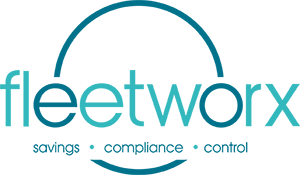11 Dec The Great Cash or Car Conundrum
Although the offer of a cash allowance as an alternative to company cars may be considered a fairly ubiquitous option for company car users, it is, in fact, not as widespread as expected.
A recent major report on Global Company Car Policies suggests that only 34% of companies across Europe allow all their employees the choice of cash allowance rather than car; whilst 66% of companies restrict the choice to certain employees or don’t provide the choice at all. Nowhere is the situation more polarised than the UK, with only 17% of companies allowing all employees the option of cash allowance.
This suggests quite clearly that car ownership, rather then the provision of an allowance, remains the preferred choice across Europe.
So why is it the company car is still the preferred route?
- Employee wellbeing
- Most fleet owners manage their car selection design quite tightly so they can exert some control over their fleet and the type of vehicles driven by their employees. A well organised and correctly specified car fleet provides a more controlled environment for the employee; assisting safety, comfort and productivity. As the fleet supply chain exists to manage the vehicle, and support the driver, it also removes the personal burden of responsibility for the upkeep of the vehicle, allowing the employee to be free from the distractions and compromises of personal car ownership.
- Image
- Driving the right type of vehicle adds to the strategic value of the brand building efforts of the business. The vehicle needs to reflect the brand image and personality that the business is projecting. Sports cars may be desirable to the employee but if they contradict the understated, professional and level brand image that is being communicated then the customer may be left confused about the brand and its real values.
- Recruitment and retention tool
- A well-defined company car policy can be a major attraction to new recruits and can be used by the employer to create a point of difference between themselves and their competitive set. If a company decides to offer car allowances then that amount is fixed by policy and has a defined value in the mind of the employee. However a company offering cars can use this to their advantage and employ smart policies such as these to provide higher value vehicles, and hence an increased package, at no extra cost to the business.
- Tax Position
- Once a cash alternative is made available to employees it triggers the new tax regulation that means the employee will be taxed on the higher of the BiK or the cash allowance. As well as higher tax liability for the employee, it also removes the incentive to choose low emitting vehicles, as the tax benefit will be eroded. The employer will also be subjected to higher NI contributions on those vehicles that were previously enjoying low BiK values.
- Cost Management
- Employers operating a cash allowance scheme need to be aware of the underlying temptation for car users to choose alternative transport options in order to reduce the mileage accrual on their private vehicle. The use of alternative transport naturally increases mobility costs, and can impact of the total mobility spend of the company.
Although advocates of cash allowances may consider it the easy option for providing cars, it is, in fact, a tactic that could erode the many benefits provided by a well-managed company car fleet.
Back to Blogs Back to Case Studies List

Sorry, the comment form is closed at this time.